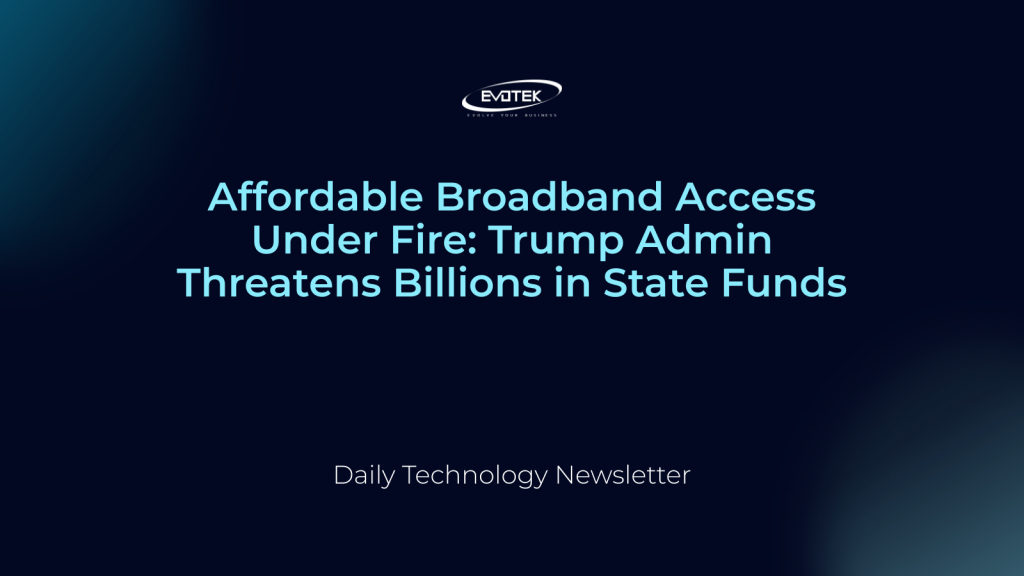Efforts by states to ensure affordable internet access for their most vulnerable residents are reportedly facing significant opposition from the Trump administration. Allegations suggest a threat to withhold billions in federal broadband infrastructure funding from states that mandate low-cost internet services.
California, for instance, has been a battleground for such initiatives. Earlier proposals aimed to require major internet service providers (ISPs) to offer speeds of at least 100 Mbps download and 20 Mbps upload for just $15 per month to qualified low-income residents. This mirrored similar legislation in New York State. Such a mandate was projected to cost the state’s four largest ISPs less than one cent on the dollar of their revenue, yet yield nearly $100 million annually in savings for low-income households.
Lobbying Undermines State Affordability Efforts
Despite its potential, the proposed California Affordable Home Internet Act (AB 353) encountered substantial resistance. Reports indicate that behind-the-scenes amendments, influenced by telecom lobbyists, significantly diluted the bill. These changes reportedly halved the required speeds to 50 Mbps down and 10 Mbps up, and crucially, stripped away any meaningful oversight or reporting requirements for ISPs. This effectively curtailed the California Public Utilities Commission’s ability to regulate broadband affordability.
Federal Funding Hangs in the Balance
Even as the California bill navigated legislative challenges, the Trump administration reportedly took steps to undermine such state-level affordability mandates. California Assemblymember Tasha Boerner, the bill’s sponsor, claimed her office was informed that California risked losing access to a substantial $1.86 billion in Broadband Equity, Access, and Deployment (BEAD) funds if it compelled ISPs to offer low-cost services to low-income individuals.
These BEAD funds are part of the broader $42.5 billion in broadband grants allocated through the 2021 infrastructure bill. Notably, many Republicans voted against this bipartisan legislation. Through the National Telecommunications and Information Administration (NTIA), the federal government is now reportedly reinterpreting portions of the bill, potentially removing requirements related to labor rights and low-income affordability. The new head of the NTIA, a former Ted Cruz staffer, has publicly criticized affordable fiber optic broadband as “woke.”
Systemic Challenges to Universal Broadband Access
Beyond affordability, critics argue that current federal policy also favors certain industry players. There are concerns that billions of dollars are being directed towards Elon Musk’s Starlink satellite network, despite its higher costs and potential for congestion, at the expense of more reliable and affordable options like local, community-owned municipal fiber networks and cooperative initiatives.
The situation in California serves as a stark illustration of ongoing challenges in U.S. telecom policy. Experts argue that the ability of a handful of telecom monopolies to influence legislation at both state and federal levels contributes to a system where crucial public interest initiatives face an uphill battle. This alleged pattern of corruption impacts various aspects of digital life:
- The elimination of a popular program providing $30 broadband discounts for low-income individuals.
- Failed efforts to offer free Wi-Fi to impoverished rural schoolchildren.
- The repeal of net neutrality protections.
- The weakening of the FCC’s ability to hold telecom giants accountable.
- The dismantling of U.S. broadband privacy oversight.
While these actions are often framed by some as “cost-saving” or “government efficiency” measures, research indicates they frequently result in increased costs for consumers and reduced access to essential services. Critics assert that these moves highlight a deeper systemic issue where corporate interests often supersede the public’s need for accessible and affordable broadband.

 日本語
日本語 한국어
한국어 Tiếng Việt
Tiếng Việt 简体中文
简体中文